New Disability Bill Signals an Era of Change in Belize
History was made on Thursday when Belize’s first-ever Disability Bill was introduced in the House of Representatives. This thirty-three-page bill seeks to ensure that people with disabilities have full and equal enjoyment of rights, privileges and benefits afforded by the Constitution of Belize. As Belize committed to the United Nations Conventions for people with disabilities in 2011, the integration of a disability bill has been highly anticipated. We spoke with a few people who played a part in the creation of this bill to find out how it will benefit this vulnerable population and what measures it takes to preserve their rights. Here’s News Five’s Britney Gordon with that story.
Britney Gordon, reporting
The long-awaited Disabilities Bill has finally been presented in the National Assembly. In 2011, Belize signed and ratified the United Nations Conventions on the rights of persons with disabilities which is a commitment to ensuring that the rights of people with disabilities are preserved and that they have equal access to opportunities. Now, after thirteen years, this commitment is finding its way into Belizean law. Dolores Balderamos-Garcia, Minister of Human Development, introduced the bill in the House of Representatives on Thursday.
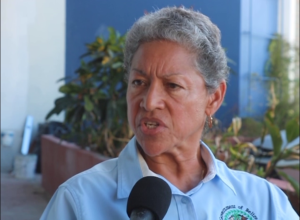
Dolores Balderamos Garcia
Dolores Balderamos Garcia, Minister of Human Development
“So we’re a little bit late. We’re, we’re playing a bit of catch up. But of course, where we are today is as a result of a lot of advocacy and I think of, the older people who went before, the people who have been wonderful advocates for the rights of persons with disabilities, those who have passed on and those who are retired. But then, of course, we have the people who are working now on it. We have people like Miss Christy Almeida. We have our special envoy, misses Rosanna Briceño and mister Marshall Nunez. We have many advocates. And basically, we’ve come to a point now where, a year and a half ago or so, we decided to do extensive consultations on what should go in our disabilities bill. And which we hope will become law this year for sure.”
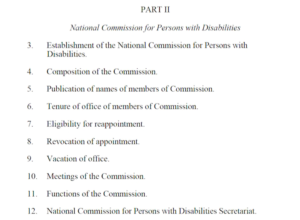 She explained that the objective of the bill is to provide legislative security for people with disabilities so that they may have a ground to stand on when seeking justice over the infringement of their rights. Marshall Nunez, a disability coordinator who was a consultant on the creation of this bill, stressed the significance of this.
She explained that the objective of the bill is to provide legislative security for people with disabilities so that they may have a ground to stand on when seeking justice over the infringement of their rights. Marshall Nunez, a disability coordinator who was a consultant on the creation of this bill, stressed the significance of this.
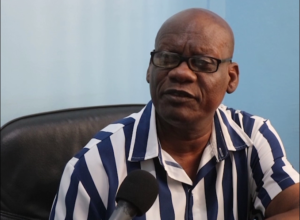
Marshall Nunez
Marshall Nunez, Disability coordinator
“The whole idea behind establishing a disability legislation is to work towards the protection and rights of persons with disabilities in an effort to improve their quality of life. I think the salient things coming out of the bill, I think first and foremost will be establishment of a disability commission. The commission will be so empowered to make recommendation to other ministries in so far as it relates to amending or upgrading their legislations, to bring it in compliance in trying to establish those very same things, the protection and rights of persons with disabilities.”
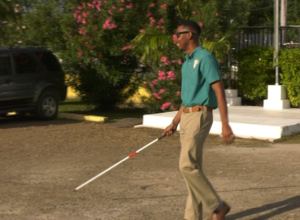 Should this bill be passed, a significant outcome will be the establishment of a disability commission that will have the power to make recommendations to other ministries to amend or upgrade their legislations as to further protect the rights of and accommodate the disabled. Additionally, a tribunal will be created to give more power to persons living with disabilities so that they may voice grievances over being mistreated. Kenrick Theus, President of the Belize Association for Persons with Diverse Abilities, shared his optimisms over the bill.
Should this bill be passed, a significant outcome will be the establishment of a disability commission that will have the power to make recommendations to other ministries to amend or upgrade their legislations as to further protect the rights of and accommodate the disabled. Additionally, a tribunal will be created to give more power to persons living with disabilities so that they may voice grievances over being mistreated. Kenrick Theus, President of the Belize Association for Persons with Diverse Abilities, shared his optimisms over the bill.
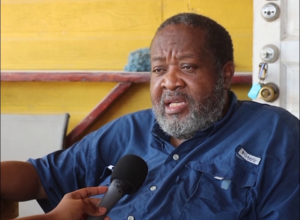
Kenrick Theus
Kenrick Theus, President, B.A.P.D.A.
“The bill has a lot of good in it, and as I said, for example, there are people who will never work in Belize who are disabled. And the bill sets out the original, because I don’t know what’s in this one sets out that the those who would never be able to work would still be able to get something out of the social security scheme. It offers protection where a person who is disabled feels discriminated against. It sets out in law where buildings would have to have ramps, for example access, accessibility. So all those things are good. And also talks about the where a child for example, the protection of people who are disabled and feel any sort of discrimination, they have the ability to go to a tribunal and then the tribunal will hear their matter, and then it should be cleared from there. And that tribunal has the, if I’m not mistaken, has the right mental levy fines and all that in there as well.”
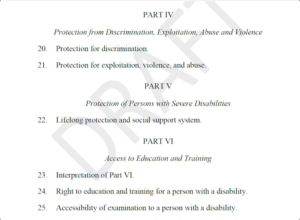 Along with local consultations, the bill is also the combination of several other disability acts in the region. Nunez told us that it was created by selected what parts fit Belize best.
Along with local consultations, the bill is also the combination of several other disability acts in the region. Nunez told us that it was created by selected what parts fit Belize best.
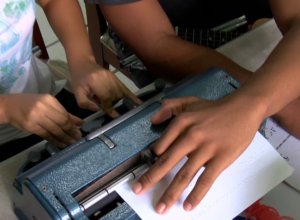 Marshall Nunez
Marshall Nunez
“This legislation, we did a lot of consultation with persons within the region. We looked at those countries who have disability legislation within the region, Trinidad, Jamaica Antigua and Barbuda, Saint Lucia, Barbados. And so we looked at all of those and we felt that we took the best fit out of each and every one of them so as not to reinvent the wheel. And so I think we came up with the best fit. We use mostly Jamaica model. There is quite a lot of similarity with the Jamaica disability Act and so a lot of adoption for this one came out of that.”
Aside from the formation of the disability committee and tribunal, the bill also seeks to ensure that accessibility is made a priority throughout the country.
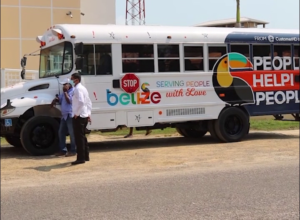 Dolores Balderamos Garcia
Dolores Balderamos Garcia
“If you make legislation that you are going to not only respect the rights of persons with disabilities, but do something about it, then the practical benefits that should come are That there will be recourse, there will be a place and a structure where persons with disabilities will be able to hold all the relevant parties accountable. Whether it’s government, private sector, schools, health, education, employment, all of these things are important. And basically what we’re saying is that we want to ensure that persons with disabilities, let’s take wheelchair access, is As the most, probably the most glaring example, the most obvious example, many of our buildings are not wheelchair accessible for persons with that kind of mobility difficulty, so basically what the law is saying is that buildings will have to make themselves accessible to people in a wheelchair, for example. No, it won’t apply to the panades shop, but it will apply to a building such as this, which is the home of Channel 5. It will apply to government offices. It will apply to private businesses. and so we will have to become a little more aware.”
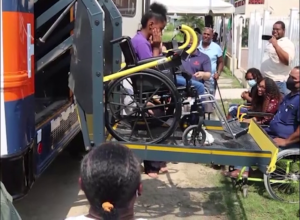 According to Theus, while the bill is overdue, it is a step in the right direction. One that he hopes will continue to be taken as the bill develops over time.
According to Theus, while the bill is overdue, it is a step in the right direction. One that he hopes will continue to be taken as the bill develops over time.
Kenrick Theus
“So with time, if there’s anything else that needs to be added in or change, we have enough time to verify it over time. I would hate to have to do that rather quickly, simply because if we had all this amount of years to wait, then it should and we have, we can copy the wheel. We don’t have to reinvent it. Other people or other countries have built a similar to this. So why not get the best of what is out there and just simply implement it here. Some people will say it’s a matter of finance, it’s a matter of money. But then again, if you have this, you’ve always had this disabled persons in the country, and if your budget on them has been zero for the last fifty years, then it’s time to spend.”
Britney Gordon for News Five.





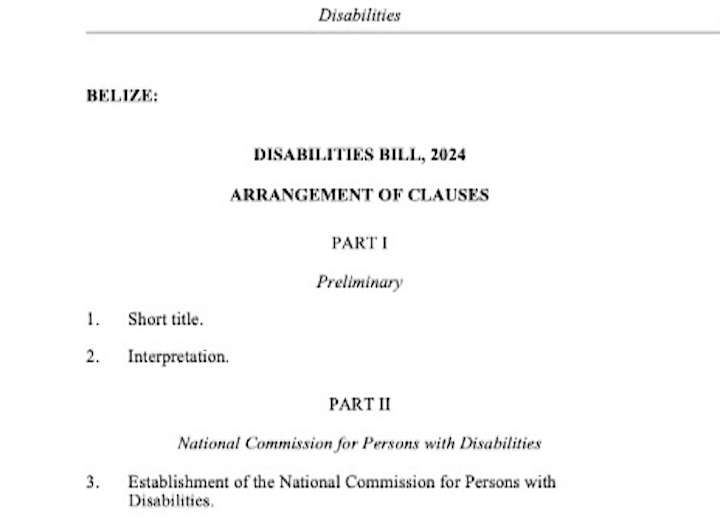

Facebook Comments